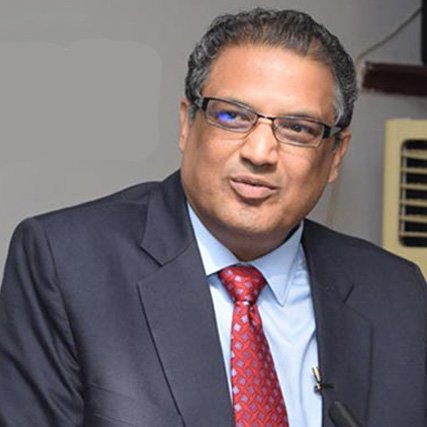In my ancestral region of Khushab and Sargodha, there is a famous and amusing tradition. During the World War, the British used to conduct recruitment drives for soldiers. Often, at such recruitment ceremonies, a British officer would come and deliver a motivational speech.
In one such event held among the well-known Lak tribe of Sargodha an ancient local tribe full of native wisdom the British officer said in his speech:
“Your beloved Queen, who always worries herself sick for your welfare, has been attacked by a cruel man named Hitler. The kind Queen wishes to do much for you, but Hitler stands in her way.”
In his emotional appeal, the British officer urged the young men of the Lak tribe to enlist in the army to help their beloved Queen.
At that moment, an elderly Lak stood up and said to the British officer,
“If it has come down to the Laks now, then my advice is that the Queen should apologize to Hitler and make peace because we surely cannot fight to save her.”
The purpose of telling this story is this: if it has come down to a humble man like me, then I seek forgiveness from everyone.
I am under no illusion that I am Nietzsche’s Superman, nor am I worthy of becoming Iqbal’s Shaheen (Eagle). I am, as I always have been, merely a reporter by nature or, in the words of Mian Muhammad Bakhsh, just a stone or bit of rubbish lying in the alleyways.
I follow Rumi and Bulleh Shah, engaged in a struggle with my own self and my own ego. How can I compare or contend with those crowned with glory? I consider myself sinful and others virtuous. If any friend or passerby becomes upset with me, I am the first to apologize. All my friends can testify that I do not hesitate, even slightly, to seek forgiveness whether for mistakes committed or uncommitted.
I regret the recent events in which a reporter himself became the news. This is neither our job nor is it appropriate for us.
Those in power, politicians, and journalists all have a stature far greater and nobler than mine. I consider myself the lowest of all and strive to kill my ego.
What contest or dispute can a dwarf like me have with giants? I am merely the last soldier of a defeated army. What conflict can a Shudra have with Brahmins?
To all who are angry with me, I bow and seek forgiveness. I admit that the mistakes are all mine a hundred percent mine and all the virtues belong to them.
Following the principle of “ladies first,” my first apology is to Fiza Ali.
What status or standing do I have that I should deny anything she has said? She called me a “bathroom cleaner” I bow my head in acceptance. I am a sweeper, and I am content with that title.
My apology to Fiza Ali is also due because a few people, in my defense, spoke disrespectfully about her. I fold my hands and apologize to her for that.
In this same context, my dear Hammad Azhar advised me that since I always advocate reconciliation, instead of making excuses, I should simply apologize directly to the establishment.
Mr. Hammad’s father, Mian Azhar, was a straightforward and kind man. Hammad Azhar was an internee student of Lord Nazir when I hosted the program “Aik Din Geo Ke Saath” (A Day with Geo) with Lord Nazir Ahmed.
He (Hammad) is much younger than I am, so accepting his wise advice, I seek forgiveness from Hammad Azhar as well. I wish to make peace with him by admitting all my mistakes, even if I must bow before him.
I am personally an admirer of Faisal Vawda. He too became a target of friendly fire even though he always treated me with respect and mentioned me with regard. Disagreements happen, but humanity and friendship are far more important. I apologize to him as well for whatever grievance he may have with me.
Shahbaz Gill has been my long-time well-wisher and is also from my community. For the past two or three years, he has disagreed with my columns and opinions and has been continuously critical of me, even leveling many accusations.
But from today, I clear my heart and thank him for he never forgot me and always remembered me. May God keep him happy always. To him also, I offer my apology and seek forgiveness.
To all members of Pakistan Tehreek-e-Insaf, big or small, who often remain angry with me I apologize.
Political disagreement should not be taken as personal enmity. Disagreement should not become a source of hatred. When disagreement disappears, societies drown.
I respect their opinions and ask them to forgive me for my mistaken views.
In the words of the poet, “If the conversation has come down to me, the humble one,” then I am ready to bow before the establishment and seek forgiveness even to fall at Imran Khan’s feet if need be.
I have no personal ego, nor do I feel any shame in apologizing.
And finally and most importantly my last apology is to General Ahmad Sharif Chaudhry, for he was hurt by me, even though I had neither such intention nor such desire.
Among the journalist brothers who disagree with me, all have a status far greater than mine. I cannot even touch the dust of their feet. I am personally grateful to them for remembering me in their disagreement; otherwise, they would not have considered me worth noticing at all.
I am indebted to them all. May they all remain happy.
If anyone’s heart was hurt by my words or tone, I apologize to each and every one of them. If jealousy or competition was the cause of their displeasure, then please consider me withdrawn from that race.
In conclusion, let me say: you have heard about personal grudges, but despite my best efforts, I have not been able to kill my journalistic ego.
Please, allow me to do my journalism.
Among politicians and journalists who disagree with me let them do their politics and their journalism.
Throughout my life, I have never held personal grudges beyond principled disagreements. I have never fabricated scandals against anyone, never sensationalized any scandal, and never accused anyone of financial corruption without evidence.
I have always tried to respond to every disagreement within the boundaries of decency and journalism. Even then, humans are prone to error. If I have erred anywhere, I am always ready to apologize and seek forgiveness.
I believe completely in Bulleh Shah’s saying “Never break a human heart, for God resides only in hearts.”
Let politicians and rulers do whatever they wish disagreement, expressed with civility, is the right of journalists.
If even that is denied, society will become colorless and decline.
One reason for India’s defeat by Pakistan was that Indian journalists were one-colored all supporters of Modi’s Hindutva ideology whereas Pakistan’s journalists were diverse. That is why people considered Pakistani journalism more credible.
If journalism remains credible, the nation remains credible.
My apology stands open all I ask is a little space.
May those with big hearts continue to grant it.
 Colors
Colors  View Books
View Books 



